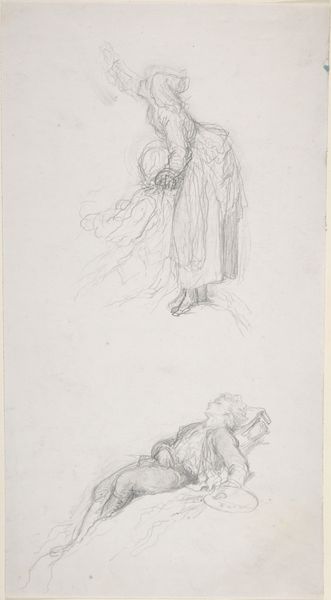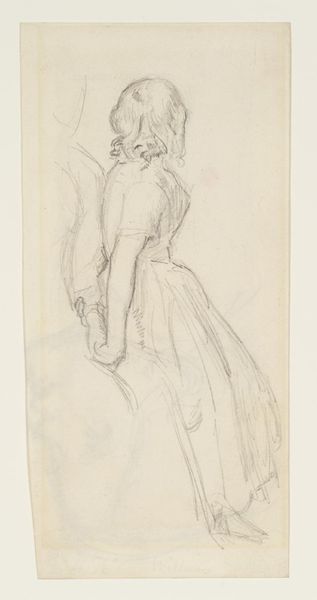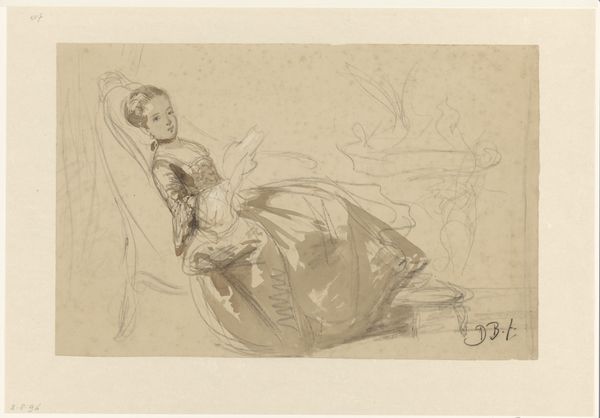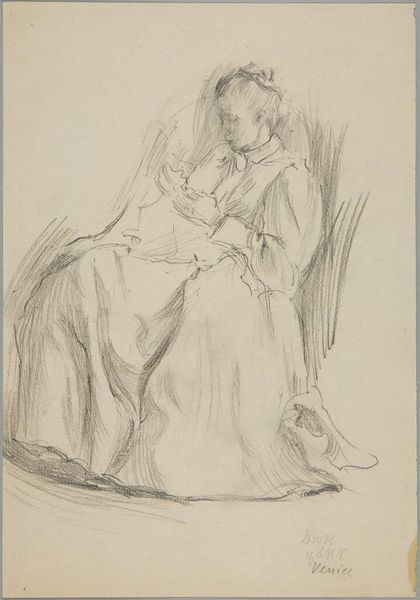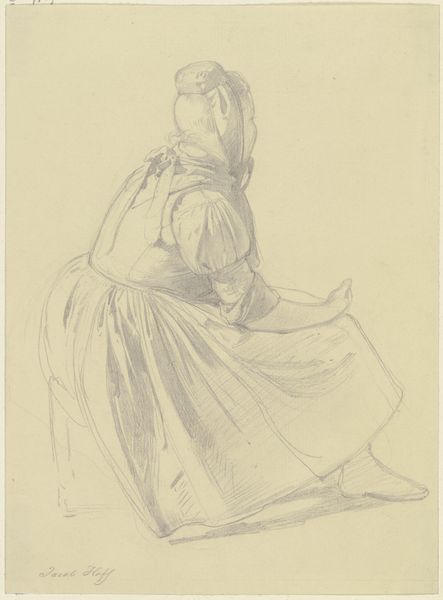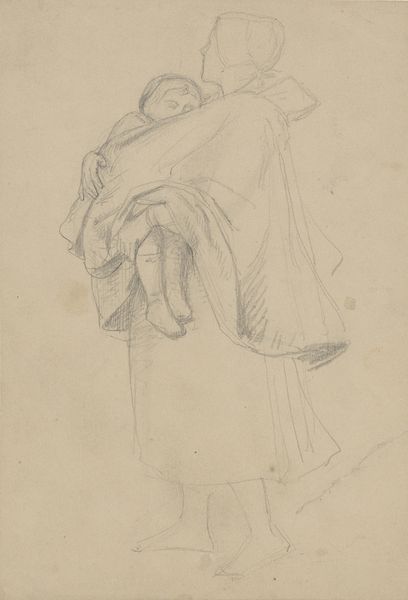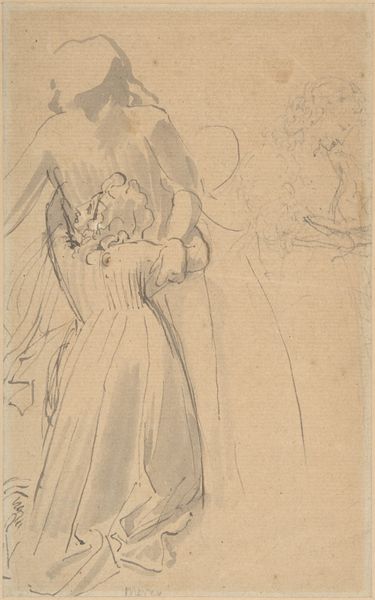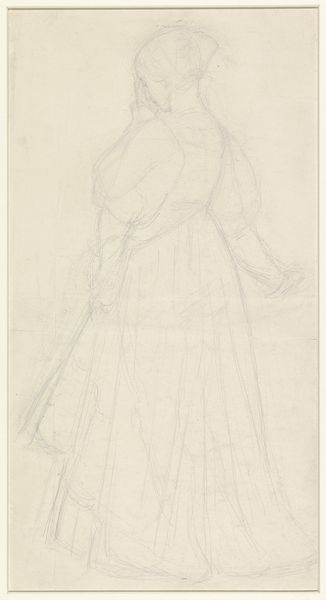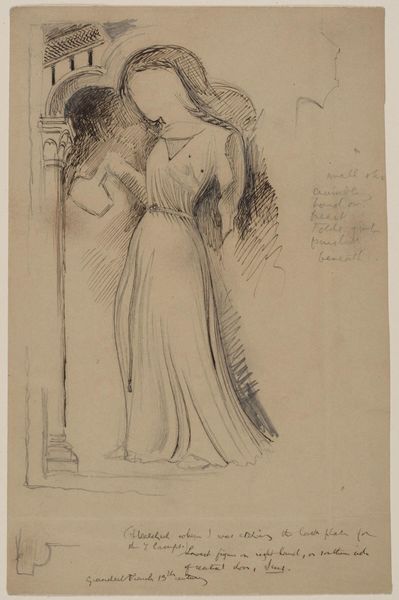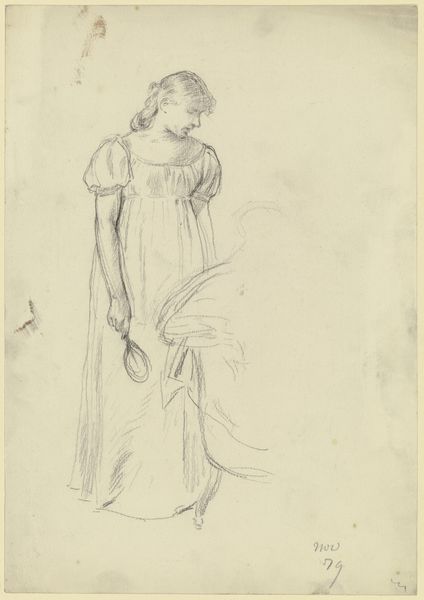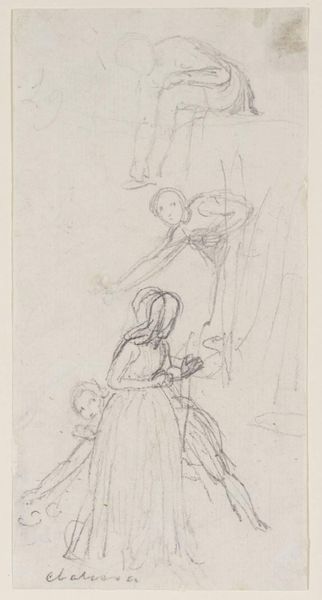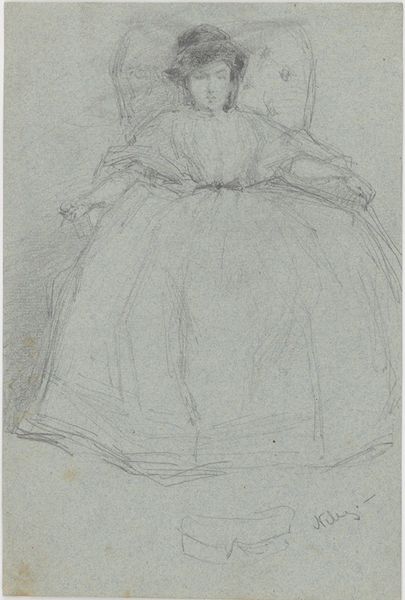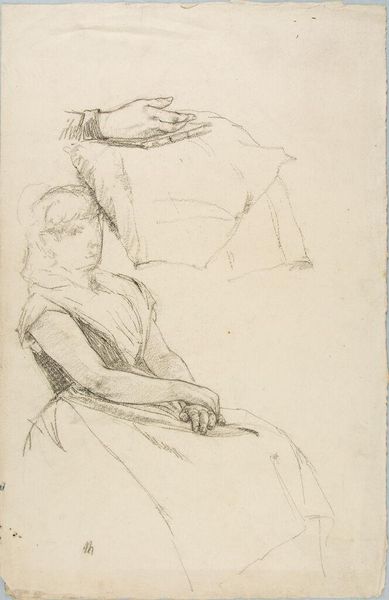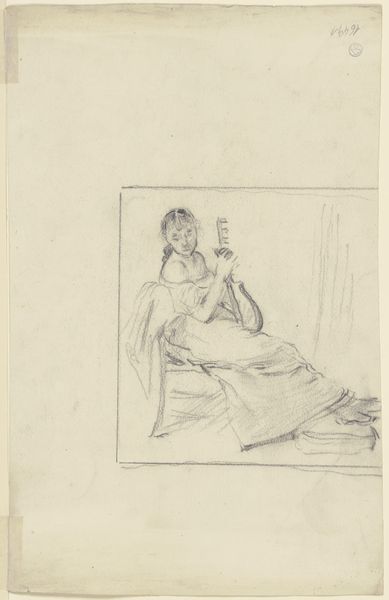
Design for a Gothic Arch with the Artist and Effie Ruskin Embracing (recto); Design for a Gothic Arch with Effie as an Angel (verso) 1853
0:00
0:00
Dimensions: 232 × 115 mm
Copyright: Public Domain
Editor: So, this is "Design for a Gothic Arch with the Artist and Effie Ruskin Embracing," a pencil sketch from 1853 by John Everett Millais, housed at the Art Institute of Chicago. It looks like a tender, perhaps even a slightly burdened interaction between the artist and Effie. How would you interpret this piece? Curator: The Gothic arch, a symbol in itself, frames their relationship. The architectural detail is fascinating—not just structure, but also memory and aspiration. Note how Millais depicts himself close to Effie, yet their touch is hesitant, almost a seeking of absolution. Considering Victorian ideals, does this embrace speak of societal expectation, or a deeper yearning? Editor: Absolution… That’s interesting. It seems like there’s another sketch on the back as well. Is it related? Curator: Absolutely! The verso depicts Effie as an angel, which significantly elevates the symbolism. The arch becomes a celestial gateway. How does it change your perception when seeing her now as a heavenly figure? Editor: It’s like he’s projecting an idealized image onto her, perhaps wrestling with the earthly versus the divine within their relationship. Curator: Precisely! What feelings does that idealized angelic figure evoke when seen through a modern lens? Are we witnessing admiration, idealization, or something perhaps more complicated given their history? Editor: It feels…complex. There’s a tension between reality and aspiration. This piece has revealed layers about societal norms and personal struggles intertwined through visual metaphor. Curator: Indeed. Images provide echoes that vibrate differently depending on who's perceiving them. The work resonates because its iconography, though historically bound, taps into enduring human desires and the inherent gap between reality and how we envision things.
Comments
No comments
Be the first to comment and join the conversation on the ultimate creative platform.
